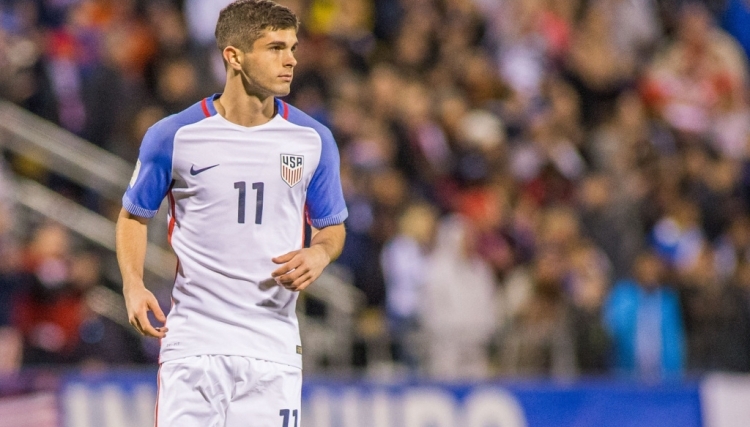MLSSoccer.com writer Phil West released his newest book, “I Believe That We Will Win: The Path to a U.S. Men’s World Cup Victory,” in May. His book is a response to the United States Men’s National Team’s (USMNT) failure to qualify for the 2018 World Cup.
While it’s more than fair to argue the potential of the USMNT to one day develop into an international power, the premise of his book is flawed. He basically argues that better developing the youth program in combination with hosting the 2026 World Cup will result in victory. I believe this is true. However, he ignores some major problems with developing the American youth program.
Unfortunately, West also undermines his own belief in USMNT victory by spending much of his book highlighting the challenges the USMNT faces to win the World Cup.
The reality is this: the USMNT will get a boost from hosting the World Cup. They get to play in front of their home fans, in their home country. The team will not have to navigate a foreign culture for the tournament or practice on unfamiliar grounds. West is also correct when he points out the young talent, led by Christian Pulisic, that will be in its prime in 2026. Yet none of this is enough. It’s great to have faith in the future, but even West points out the real challenges.
What are the challenges?
The other side of the coin shows that men’s soccer, while gaining in popularity, does not attract the majority of high-level athletes in the United States. They are raised to play football, basketball, baseball, and in some cases, hockey. If they want to cash in on their athletic talents, playing soccer in the U.S. doesn’t appeal. This is where U.S. Soccer continues to fail, and West only partially addresses that.
He notes that the U.S. must improve its work in reaching out to Latin Americans in the country, especially dual nationals. The USMNT does not want to lose more talent like Jonathan Gonzalez to Mexico and other neighbors. Yet, what about the inner city kids in Cincinnati? What about the African-American community? I saw it first-hand as a teacher in inner-city Cincinnati. There are talented, but underprivileged kids that choose sports like basketball because that’s all they really need to pay for.
U.S. Soccer must embrace change
If West’s vision of a 2026 or beyond World Cup victory is to come true, then U.S. Soccer must change how it does business. It can’t ignore the inner city or other impoverished areas of the country if the USMNT is to be successful. There will be those that argue that MLS doesn’t ignore those regions. They will say, look at the robust MLS academy systems being built across the country. Yet those systems continue to produce few inner city prospects.
MLS’s current top academies have set an example on where to start. The Philadelphia Union offers its academy free-of-charge to hand-in-hand with full-time schooling. Their neighbors, New York Red Bulls, offer free training and games as well.
Going a step further
The expansion teams preparing to enter the league must do the same as the Union and more. Using Cincinnati as an example, there are several areas of the city that are ripe with athletes waiting for someone to step in and make a difference in their lives. FC Cincinnati can reach these kids by taking their academy system to the next level and sponsoring inner city youth soccer from a young age.
The club already has marketing and community outreach staff members getting involved. Now it needs an academy director in place that will be aggressive in building something that will impact kids as young as age 6 and 7. If FCC can make a dent in the toughest Cincy neighborhoods, the club can build talented prospects from within, while also making a sizable impact in the community.
It can change lives
I worked with some of the worst students in Cincinnati. These were kids getting high on a street corner before school every day to deal with the pain in their lives. They didn’t know what it meant to have a purpose. There was no hope for them. One thing we’ve seen with soccer around the world is that it has the power to elevate a person’s life in so many different ways. Organized soccer in a place like Cincinnati can change their lives while adding more talent to the FCC and USMNT pipeline.
If U.S. Soccer wants to win a World Cup someday, it needs to take the game to the grassroots level. It must work with MLS and its franchises to get into every region of the country and build from the ground up. It’s not just the Latin American community. No community should be ignored. When U.S. Soccer and MLS finally learn this lesson, we will see a permanent shift in the quality of both the Men’s National Team and the league’s clubs.
@dciapala for @CincySoccerTalk















